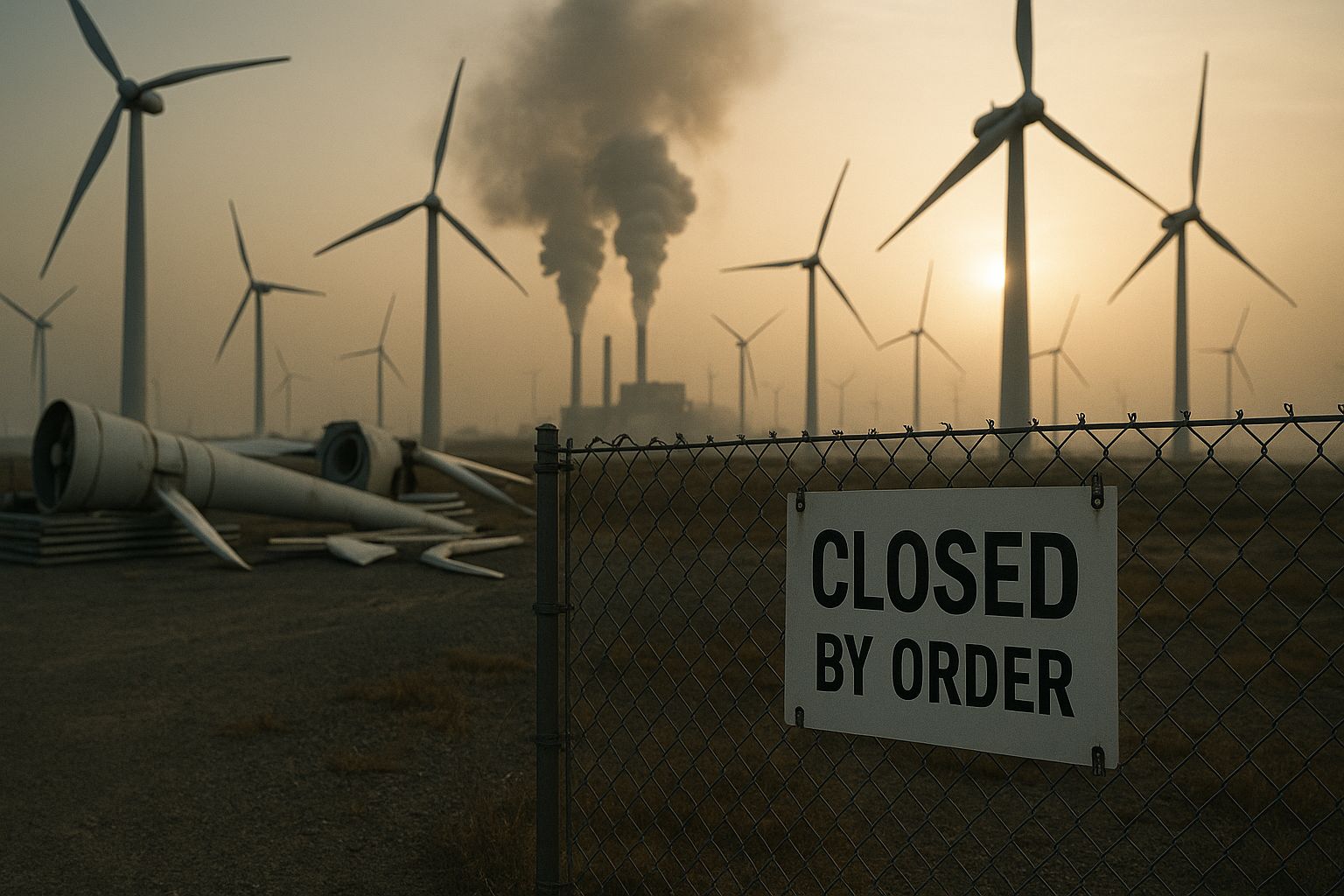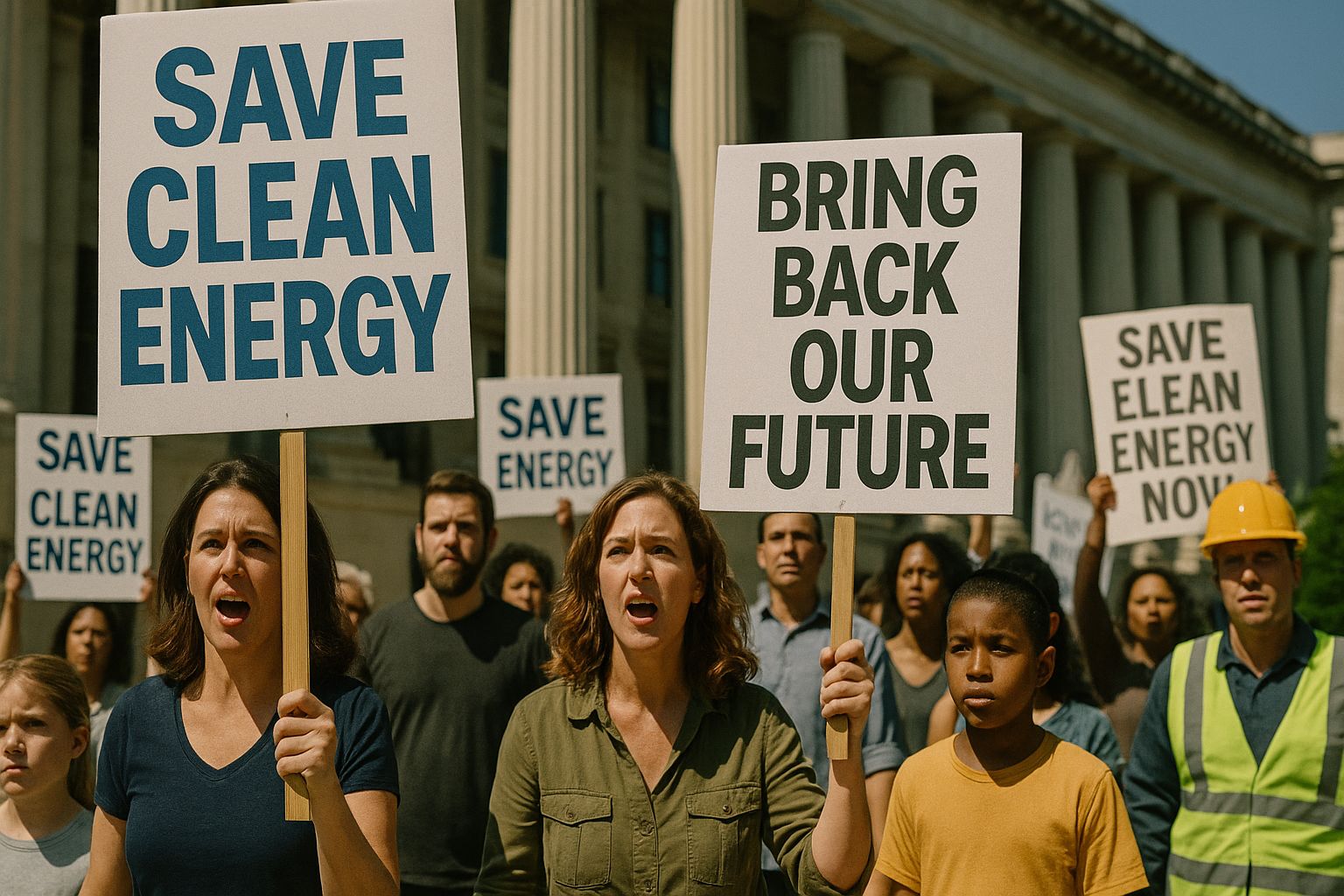- Green Glow
- Posts
- 🌱 Trump Administration Cancels $7.6 Billion in Clean Energy Grants ❌💰
🌱 Trump Administration Cancels $7.6 Billion in Clean Energy Grants ❌💰
The Trump administration has canceled $7.6 billion in clean energy grants, halting 223 projects nationwide. Learn what this means for U.S. climate goals, jobs, and energy innovation.
In a move that has sparked national debate, the Trump administration has announced the cancellation of $7.6 billion in clean energy and climate-related projects across the United States. The decision impacts 223 projects, ranging from hydrogen development to solar expansion and battery storage initiatives. Officials argue the projects were not economically viable, but critics say the cuts threaten jobs, innovation, and U.S. leadership in the global energy transition.
Table of Contents

The Scope of the Cuts
The Department of Energy (DOE) confirmed that 223 clean-energy projects are being scrapped. Collectively valued at $7.56 billion, these initiatives had been part of larger programs designed to accelerate America’s transition to renewable power.
Notable projects include:
ARCHES H2 Hydrogen Hub in California – worth ~$1.2 billion.
Minnesota’s renewable energy expansion plan – designed to add 28 GW of solar and wind power.
Battery storage and grid upgrades in New Mexico – targeting underserved Indigenous communities.
Solar manufacturing and deployment projects in multiple states.
Carbon capture programs under the Office of Fossil Energy, including projects in Texas.
Official Justification
The Trump administration defended the move by citing economic inefficiency and lack of return on investment. A DOE statement argued that taxpayer dollars should not support projects “that fail to adequately advance national energy needs or deliver positive economic returns.”
Officials further emphasized that energy policy should be based on cost-effectiveness and market viability, rather than long-term climate targets.
Political Reactions
The decision has drawn sharp criticism, particularly from Democratic-led states where many projects were located.
California Governor Gavin Newsom condemned the cancellation of the ARCHES hydrogen initiative, calling it a blow to climate innovation and job creation.
Other state officials accused the administration of politicizing the electric grid, undermining clean energy development, and prioritizing fossil fuels over sustainable alternatives.
Environmental groups also raised alarms, warning that the cuts risk slowing America’s climate progress and leaving local communities vulnerable to rising energy costs and climate-related challenges.
Economic and Climate Implications
1. Job Losses
Clean energy projects often bring thousands of jobs in construction, operations, and manufacturing. Cutting billions in funding directly impacts workers and local economies.
2. Slowing Innovation
Withdrawing federal support could deter private investors from backing long-term projects, as policy instability increases perceived risks.

3. Global Competitiveness
While countries like China and the EU accelerate their clean energy investments, the U.S. risks falling behind in solar manufacturing, hydrogen innovation, and battery storage leadership.
4. Setback for Climate Goals
The U.S. had pledged significant emissions reductions under international climate frameworks. Canceling these projects makes achieving such targets far more difficult.
Communities Most Affected
One of the more controversial aspects of the cuts is the cancellation of projects benefiting underserved and Indigenous communities. For example, the $15 million battery storage and grid reliability program in New Mexico aimed to enhance resilience and energy equity. Critics argue these communities will now face prolonged barriers to affordable and sustainable energy access.
Broader Policy Context
The decision fits into a larger pattern of the administration rolling back climate funding from legislation passed under previous governments. Programs such as the Greenhouse Gas Reduction Fund and Solar for All have also faced challenges.
This signals a broader shift away from federal leadership on climate policy, placing more responsibility on states, cities, and private sector innovators to fill the gap.

Conclusion
The cancellation of $7.6 billion in clean energy projects marks a significant turning point in U.S. energy policy. While officials frame the decision as fiscal responsibility, critics see it as a political setback for climate action and economic growth.
The debate underscores a deeper question: Will the U.S. prioritize short-term cost savings over long-term energy innovation and sustainability?
FAQs
How many projects were canceled?
A total of 223 clean-energy projects across the United States were canceled.
What types of projects were cut?
Projects included hydrogen hubs, solar expansion, battery storage, grid modernization, and carbon capture initiatives.
Why were these projects canceled?
The Department of Energy stated they lacked economic viability and did not provide sufficient return on taxpayer investment.
Which states are most affected?
California, Minnesota, New Mexico, and Texas saw some of the largest project cancellations.
You May Also Like
🌱 How Climate Change Is Disrupting Pakistan’s Schools and Futures 🔥📚
🌱 Half of Americans Still Breathe Unhealthy Air—Here's Why It Matters 🌬️😷
🌱 Why Azerbaijan's Renewable Energy Potential Remains Untapped 🛑💨
🌱 How Drug Pollution Is Secretly Changing the Way Salmon Survive 💊🐟
🌱 Burning Up & Burning Out: The Data Linking Climate to Energy Demand 🔥⚡
External Links
Secret Energy Department "hit list" targets renewable energy industry
Renewable energy jumps to new high, powered by China solar boom
Trump is tackling every ‘emergency’ except the important one — climate change
World climate report warns of growing risks to lives, economy and planet
How do renewable energy mandates contribute to your electric bills? Follow the money
Follow Us:
X: https://www.x.com/greenglownews
Youtube: https://www.youtube.com/@greenglownews
Instagram: https://www.instagram.com/greenglownews
Sponsored Links